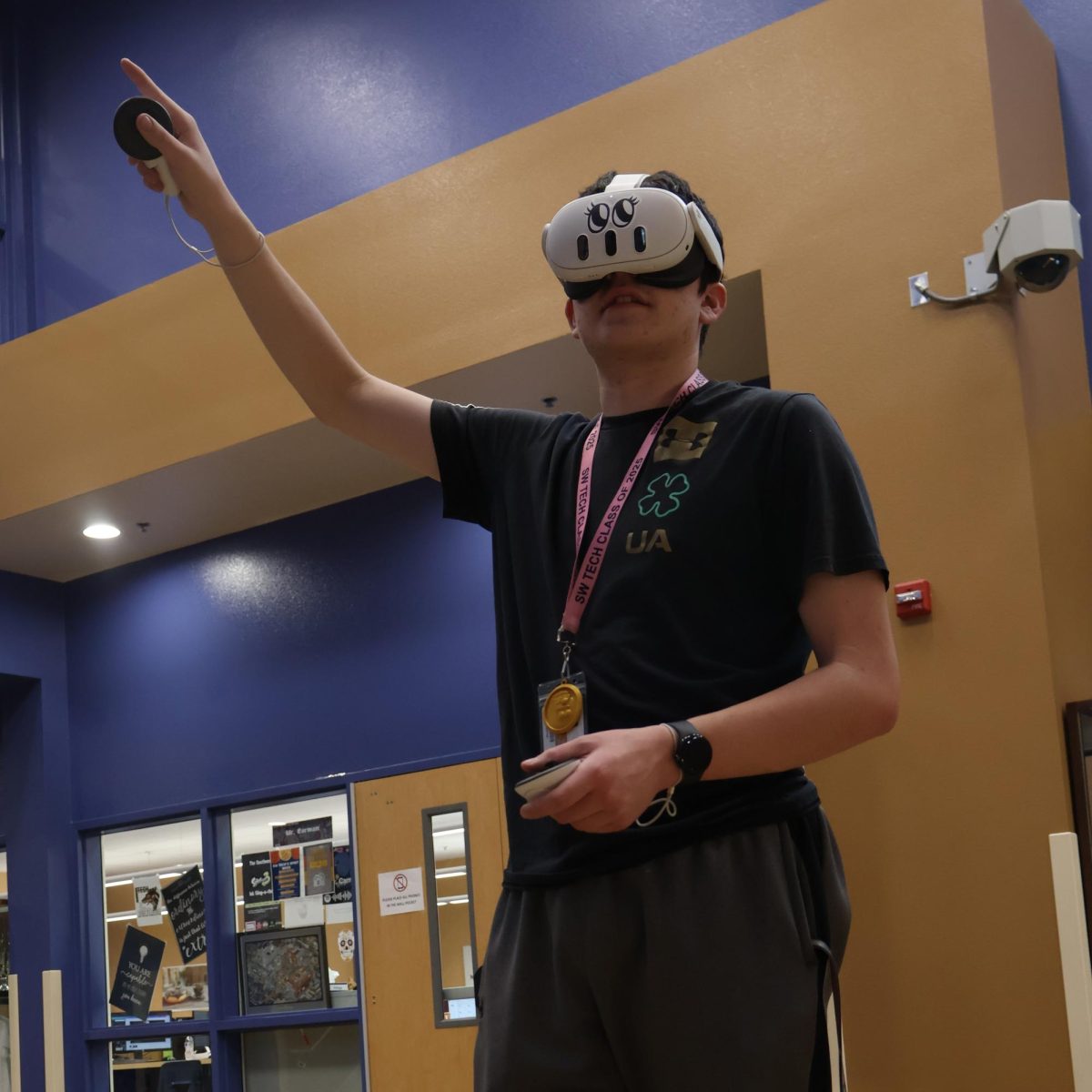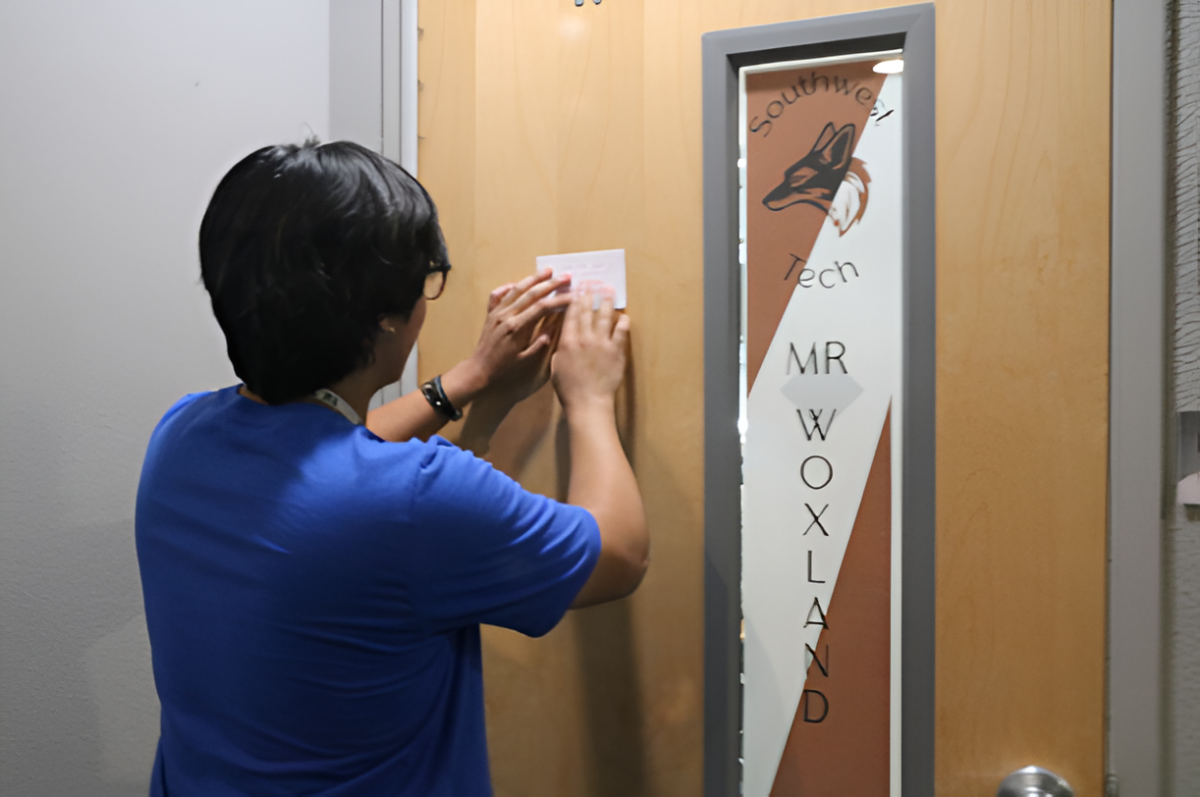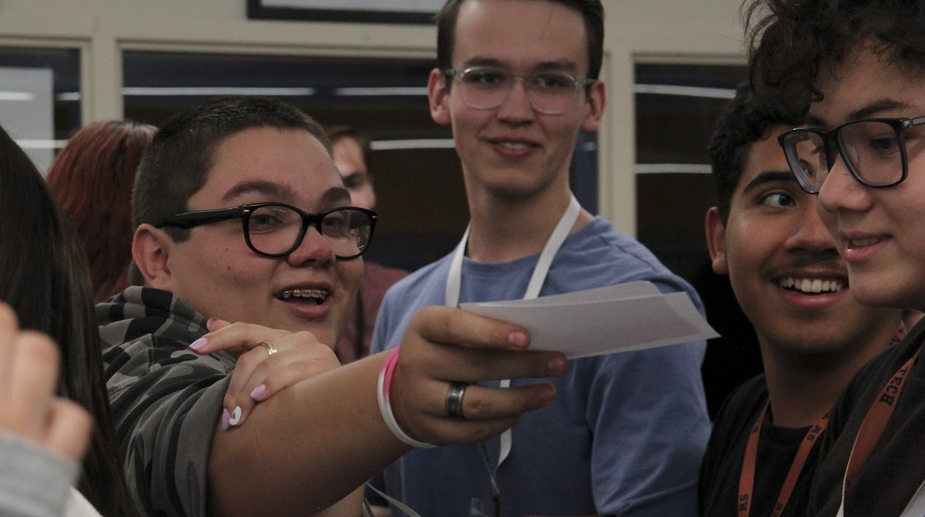Students in Digital Game Design are learning about virtual reality technology and its implementation into the curriculum.
“VR will honestly be the way we consume content in the future,” sophomore Connor Wiggins said. “I’m excited to see all the ways this stuff is utilized in the future and how it will be used in the classroom.”
Virtual reality is a 3D simulated environment where users interact with virtual surroundings as if they existed in the real world. One of the largest benefits of using virtual reality technology is that students learn through experience and test things out first-hand. Virtual reality offers a great opportunity for students to engage more actively in education by combining technology and the classroom.
“Our goal is to integrate them into our curriculum and actually start building VR games,” Digital Game Design teacher Ronald Barranco said, “We can integrate VR because we can take these [digital environments] that we’ve been designing and put our player into it with virtual reality.”
Barranco intends to encourage other teachers to branch out and integrate VR technology into their programs.
“We want to get teachers to try them,” Barranco said. “I think it’s really going to push us forward with building these types of immersive educational experiences in the future.”
Students in the class can incorporate past work they’ve done creating 3D levels for video games and adapt them into a brand-new medium, simultaneously engaging them in a one-of-a-kind learning experience.
“It was an exciting new experience to test out,” senior Michael Lazaro said. “We were able to study and take inspiration for projects. How we use virtual reality and how students get to test projects they’ve made in this new digital environment is very captivating.
Digital Game Design students can expect an increase in virtual reality involvement in the classroom.
“People are going to be researching this kind of technology more as newer devices come out,” sophomore Ryder Cantwell said. “I can’t wait to see how we use virtual reality in other classes.”


![Working in the Student Success Office, Attendance Secretary Lordis Depiazza inputs a student’s absence excuse note. Students are required to bring an excuse note to the attendance office within three days of any absence. “Reminding students that being in school is important because it reflects towards your grades and being able to do any activities with the school,” Depiazza said. “[It] seems to get the students' attention about wanting to be in school.”](https://southwestshadow.com/wp-content/uploads/2025/10/IMG_8313-1200x800.jpg)
![Arranging the fabric on the floor for a new project, senior Sapphyre-Ann Leung plans out her attire for the next deadline. With the recent closures, students now had limited resources and less margin for error with the fabric and materials they had in stock while trying to reach strict deadlines. “Joann’s had a lot of high-end fabric for our fashion competitions,” Leung said. “We couldn’t just buy ten yards of fabric from Hobby Lobby or Walmart. Since [Joann Fabrics] is no longer open, we have to buy items online, which is way more expensive.”](https://southwestshadow.com/wp-content/uploads/2025/10/IMG_0038-1200x800.jpg)


![Practicing the basic skills of nursing, sophomore Natalia Yancey gets her heartbeat checked with a stethoscope. Sophomore nursing students reviewed skills from freshman year. “I’ve always wanted to be in the medical field; it’s been my dream forever,” Yancey said. “Doing [practice skills] so early on is not only an amazing opportunity, but it helps me to prepare for my future.”](https://southwestshadow.com/wp-content/uploads/2025/10/IMG_9843-1200x800.jpg)
